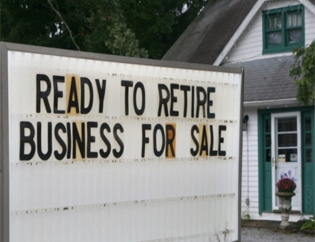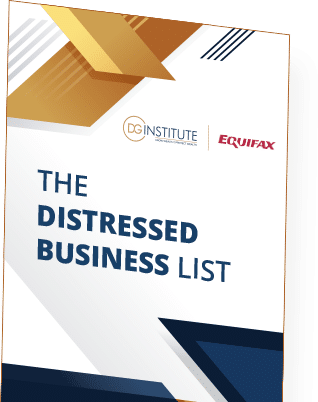The Four Types of Business Structures (And Three Tips for Choosing the Right One)
Published 1:14 am 25 Feb 2020

Having the wrong business structure could leave you open to a number of financial issues. In this article, DG Institute CEO Dominique Grubisa explains each type of structure.
The four types of business structures
- Sole Trader Business Structure
- Partnership Business Structure
- Company Business Structure
- Trust Business Structure
When you start a business, you have several choices when it comes to your company structure.
Do not make the decision lightly about which one to use.
Each business structure has its own tax and liability implications. And if you make the wrong choice for your business, you could expose yourself to issues, both legal and financial, later on.
Before making your choice, you need to understand the basics of each of Australia’s four key structures.
→ EXCLUSIVE Webinar Briefing On How Takeover And Turnaround Businesses For Profit – With No Money Down And Minimal Financial Risk
The Sole Trader Business Structure
As a sole trader, you are the only owner of the business. That means you take the responsibility for managing everything. However, it also means that you’re legally responsible for any issues the business has.
For example, you’re responsible if the business gets into debt.
This is the simplest business structure to set up. However, it also tends to carry the heaviest tax burden. That’s because a sole trader has to pay tax on every dollar of profit the business makes.
Interestingly, being a sole trader doesn’t prevent you from employing people. But if you go down this route, you still have the same responsibilities as any other company in regards to your employees.
The Partnership Business Structure
According to the ATO:
“A partnership is a group or association of people who carry on a business and distribute income or losses between themselves.”
The partnership structure can help if you’re wary of accepting full liability for potential business problems. However, partnerships can have their own issues in regards to potential disputes. That’s why it’s important to have a Partnership Agreement in place. This document outlines the roles and responsibilities of each partner.
As a separate business entity, a partnership needs a Tax File Number (TFN). It also needs to be registered under the Business Name Act, assuming you don’t use the partners’ names for the business.
Unfortunately, partnerships don’t offer much in the way of asset protection. Much like a sole trader business structure, the partners’ personal assets are part of the structure’s liability. This means that creditors could chase after your assets if the partnership experiences money issues.
The Company Business Structure
You have the choice between private and public companies with this business structure. Most companies start out private. Later on, you can go public if you intend to get listed on the Australian Stock Exchange.
Companies need to have their own TFN. Plus, they offer better asset protection than the previous two structures. Your personal assets aren’t completely protected in this structure. But creditors will generally focus on company assets only.
However, there are more compliance issues to consider with this business structure. That makes it more complex and expensive to set up. You also create more reporting obligations, both in terms of financial and legal issues.
The Trust Business Structure
Under a trust structure, you transfer the ownership of the business to a third party. This third party is the trustee, who takes responsibility for distributing all the business income.
As the ATO puts it:
“A trustee is legally responsible for the operation of the trust. The trustee can be an individual or a company. Profits from the trust go to beneficiaries.”
This is perhaps the most complicated business structure to create. There are many compliance issues to keep in mind. Plus, you’ll need to create a trust deed and file for a TFN for the trust.
However, using a trust is the best way to protect your assets. Furthermore, you can use the trust to hold property and other assets for the trust’s beneficiaries.
Choosing the Right Business Structure – Three Key Tips
Now that you understand the basics of each business structure, it’s time to make a choice. The simple fact is that there’s no “right” answer. The choice you make depends on your circumstances and how you want to operate your business.
However, we do have some tips that may help you make your decision.
Tip #1 – Think About How Your Business Generates Income
There’s a key term to keep in mind here – personal services income (PSI).
According to The Sydney Morning Herald:
“If the bulk of your income is PSI, it generally needs to be attributed to the individuals who earned the income and factored into their individual tax return rather than as business income.”
This is a key consideration when it comes to potential tax benefits. If the people in your business generate income by providing personal services, this may make some tax benefits irrelevant. For example, a company structure may not work as well as a partnership in this situation.
Tip #2 – Consider Asset Protection
This is a particular issue when it comes to sole trader and partnership structures. In both cases, you’re trading a simpler setup for more risk.
If either structure runs into financial issues, your personal assets may be in danger. For example, suppose your sole trader business ends up in debt. Unfortunately, this means that your creditors could target your house and other belongings to repay that debt.
The company and trust structures provide more protection in this respect. That’s because they don’t leave you personally liable for the success of the business.

Tip #3 – Speak to a Business Advisor
Going it alone could lead to you making the wrong choices.
A good business advisor can take a look at your situation and help you determine which structure would work best for you. They’ll also be able to provide more advice on the tax implications of each structure.
This will help you weigh up the pros and cons of each structure, rather than rushing into whatever seems like the simplest choice.
Are You A Business Owner?
Are you a business owner that can’t predict the future? Welcome to the club.
Over the past few years, we’ve seen just how unpredictable life can be, and how perilous things can get for business owners.
The reality is that you’ll never be able to predict the future, which is precisely why you need to guarantee the safety of your assets and financial security.
Here at DG Institute, we teach you to do exactly that at our Business Bounce Back Livestream Event.
Not only will we teach you how to safeguard your business and assets against uncertain times, but we’ll also equip you, and your business, to bounce, back stronger than ever.
You May Also like to Read
Vaccine Passports Incoming: What it Means For Australia
Who will need them and how will the passports impact the economy? Last week, Prime Minister, Scott Morrison threw his...
Australia’s About to Break This COVID-19 Record
Australia’s lauded COVID-19 strategy is wearing thin. Australia has been the envy of the world for most of the...
Mergers and Acquisitions in Australia Set to Hit All-Time High
The COVID-19 pandemic has seen a boom in mergers, acquisitions and capital raises in Australian companies. Real estate...
Sydney Lockdowns Extended: Here’s the Support Available
Sydney’s Lockdowns have been extended for a further 4 weeks - and that might be just the beginning. Here’s the support...
NSW Unveils New COVID-19 Support Package
The New South Wales government has just released its COVID-19 relief package following an extension to lockdowns. New...
What To Do With Your Business In Lockdown
As Australia is plunged into multiple lockdowns, it’s time for businesses to brace themselves again for impact. Just...












